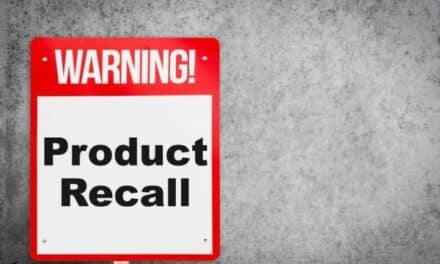FDA released a statement from Commissioner of Food and Drugs Stephen M. Hahn, MD, dated February 27, 2020, detailing potential impending shortages of drugs, medical devices, and other supplies imported from China: “The FDA has been closely monitoring the supply chain with the expectation that the COVID-19 outbreak would likely impact the medical product supply chain, including potential disruptions to supply or shortages of critical medical products in the U.S.”
Currently, only one human drug has been added to the drug shortages list related to a site affected by coronavirus. “The shortage is due to an issue with manufacturing of an active pharmaceutical ingredient used in the drug,” the FDA statement notes. “It is important to note that there are other alternatives that can be used by patients. We are working with the manufacturer as well as other manufacturers to mitigate the shortage.
The FDA statement also offers this note about medical devices:
“We are aware of 63 manufacturers which represent 72 facilities in China that produce essential medical devices; we have contacted all of them. Essential devices are those that may be prone to potential shortage if there is a supply disruption. We are aware that several of these facilities in China are adversely affected by COVID-19, citing workforce challenges, including the necessary quarantine of workers. While the FDA continues to assess whether manufacturing disruptions will affect overall market availability of these products, there are currently no reported shortages for these types of medical devices within the U.S. market.
“Regarding personal protective equipment—surgical gowns, gloves, masks, respirator protective devices, or other medical equipment designed to protect the wearer from injury or the spread of infection or illness—the FDA has heard reports of increased market demand and supply challenges for some of these products. However, the FDA is currently not aware of specific widespread shortages of medical devices, but we are aware of reports from [Centers for Disease Control and Prevention] and other U.S. partners of increased ordering of a range of human medical products through distributors as some healthcare facilities in the U.S. are preparing for potential needs if the outbreak becomes severe.
“It is important to note that no law exists requiring medical device manufacturers to notify the FDA when they become aware of a circumstance, including discontinuation of a product, that could lead to a potential shortage, and manufacturers are not required to respond when the FDA requests information about potential supply chain disruption. As with prior emergencies, the FDA has taken proactive steps to establish and remain in contact with medical device manufacturers and others in the supply chain, including hospitals and group purchasing organizations. The agency also encourages manufacturers and healthcare facilities to report any supply disruptions to the device shortages mailbox, [email protected]. This mailbox is closely monitored and has proven to be a valuable surveillance resource to augment FDA efforts to detect and mitigate potential supply chain disruption.”
No current shortages have been reported for biologics and blood supplies, food, or animal drugs; however, the FDA has been in contact with manufacturers in China, who report that they are seeing disruptions in the supply chain that could lead to shortages for some of these products.
The FDA statement also details specific proposals included in the President’s budget that would better equip the agency to mitigate medical product shortages, one of which pertains to device manufacturers:
“Establish Reporting Requirements for Device Manufacturers: The FDA does not have the same authorities for medical device shortages as it does for drugs and biological products. For instance, medical device manufacturers are not required to notify the FDA when they become aware of a circumstance that could lead to a device shortage or meaningful disruption in the supply of that device in the U.S., nor are they required to respond to inquiries from the FDA about the availability of devices. Enabling the FDA to have timely and accurate information about likely or confirmed national shortages of essential devices would allow the agency to take steps to promote the continued availability of devices of public health importance. Among other things, the FDA proposes to require that firms notify the agency of an anticipated meaningful interruption in the supply of an essential device; require all manufacturers of devices determined to be essential to periodically provide the FDA with information about the manufacturing capacity of the essential devices they manufacture; and authorize the temporary importation of devices where the benefits of the device in mitigating a shortage outweigh the risks presented by the device that could otherwise result in denial of importation of the device into the U.S.”





